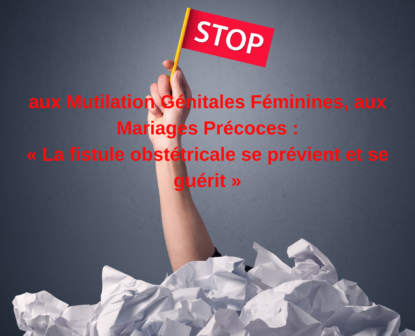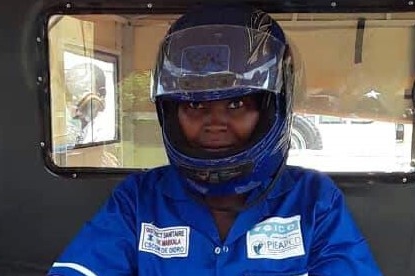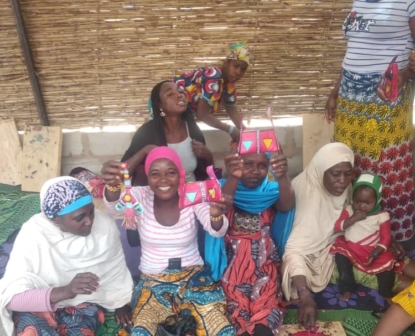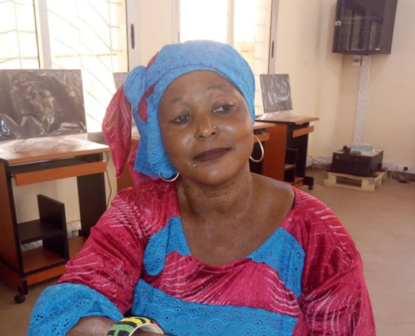Project
Prevention and Response to obstetric fistula through improved transport
-
Amount Funded
99,414 EUROProject Duration
01 Apr 2018 - 30 Mar 2020 -
-
The Platform of Initiatives, Expertise, Education and Support to local decentralised bodies or PIEAPCD is a Malian NGO created on November 4, 2008 and registered as N°0947/001715 in Mali. PIEAPCD’s objective is to contribute to the well-being of the population socially and economically through supporting small agricultural producers, education, promotion of economic solidarity especially at decentralised level.
In order to achieve this goal, PIEAPCD is focusing on the following:
- To support any initiative to raise the level of education (formal and non-formal).
- To facilitate access to important income generating activities.
- To strengthen the capacity of farmers’ organisations.
- To strengthen the capacities of communities, promote the emergence and development of culture and good governance.
- To strengthen the capacities of vulnerable groups through socio-economic and humanitarian promotion activities.
-
Organisation
The Platform of Initiatives, Expertise, Education and Support to local decentralised bodies or PIEAPCD is a Malian NGO created on November 4, 2008 and registered as N°0947/001715 in Mali. PIEAPCD’s objective is to contribute to the well-being of the population socially and economically through supporting small agricultural producers, education, promotion of economic solidarity especially at decentralised level.
In order to achieve this goal, PIEAPCD is focusing on the following:
- To support any initiative to raise the level of education (formal and non-formal).
- To facilitate access to important income generating activities.
- To strengthen the capacity of farmers’ organisations.
- To strengthen the capacities of communities, promote the emergence and development of culture and good governance.
- To strengthen the capacities of vulnerable groups through socio-economic and humanitarian promotion activities.
-
Project
The project Prevention and Response to obstetric fistula through improved transport is implemented by PIEAPCD in Segou district. In Mali, the health situation is characterised by high rates of maternal mortality and morbidity especially among young women. Obstetric fistula is a public health problem affecting marginalised and discriminated women even more compounded by a low level of education and exposed to domestic violence and social discrimination.
Studies have shown the deeper, underlying reasons and social perceptions which prevent obstetric fistula from being solved. In Mali it has been estimated that there are 600 new victims on an annual basis. To help solve obstetric fistula it is important to develop a better approach to do outreach to potentially affected women. One of these solutions is to improve the transport system to access sexual and reproductive health services. The Voice-funded project is centred and led by women survivors themselves to help other survivors as well as prevent other women from the same fate. The ambition of this project is bold: to contribute to eliminate obstetric fistula in Ségou district by creating better access.
It studies the impact of the so-called three-delay model in accessing health care (delay in the decision making at household level, the delay in the transportation of the village toward the first level health system and the delay in the health intervention itself).
The project provides 3 motorcycle ambulances driven by the youth and women of reproductive age and fistula survivors to provide better access to health facilities, and hence minimising the risks in obstetric matters including obstetric fistula. It also focuses on increasing awareness among women of their reproductive health and rights.
-
The project Prevention and Response to obstetric fistula through improved transport is implemented by PIEAPCD in Segou district. In Mali, the health situation is characterised by high rates of maternal mortality and morbidity especially among young women. Obstetric fistula is a public health problem affecting marginalised and discriminated women even more compounded by a low level of education and exposed to domestic violence and social discrimination.
Studies have shown the deeper, underlying reasons and social perceptions which prevent obstetric fistula from being solved. In Mali it has been estimated that there are 600 new victims on an annual basis. To help solve obstetric fistula it is important to develop a better approach to do outreach to potentially affected women. One of these solutions is to improve the transport system to access sexual and reproductive health services. The Voice-funded project is centred and led by women survivors themselves to help other survivors as well as prevent other women from the same fate. The ambition of this project is bold: to contribute to eliminate obstetric fistula in Ségou district by creating better access.
It studies the impact of the so-called three-delay model in accessing health care (delay in the decision making at household level, the delay in the transportation of the village toward the first level health system and the delay in the health intervention itself).
The project provides 3 motorcycle ambulances driven by the youth and women of reproductive age and fistula survivors to provide better access to health facilities, and hence minimising the risks in obstetric matters including obstetric fistula. It also focuses on increasing awareness among women of their reproductive health and rights.
-
News







